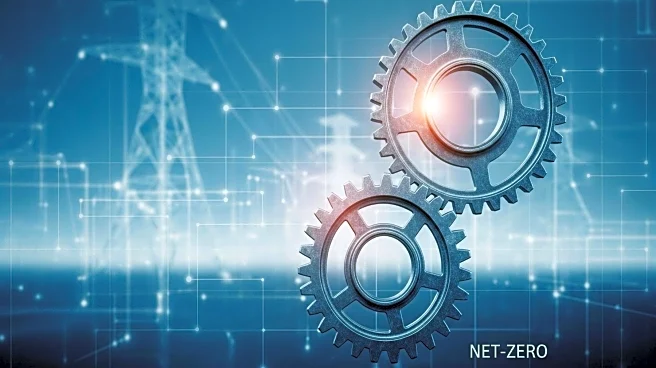What's Happening?
The energy efficiency advocacy group CLASP has released a report emphasizing the need for a significant increase in the global annual rate of energy efficiency improvement to achieve net-zero emissions by 2050. The report suggests that the rate must double to at least 4% by 2030. Appliance efficiency improvements are highlighted as a crucial component, potentially delivering 20% of the total reduction in energy demand required to meet the 2050 goal. The report also notes that the Trump administration has been critical of the Department of Energy's appliance efficiency program, arguing that it adds consumer costs for marginal energy savings. CLASP calls for stringent minimum efficiency standards for appliances, urging policymakers to implement these standards rapidly.
Why It's Important?
The push for increased energy efficiency is vital for global efforts to combat climate change and achieve net-zero emissions. Appliance efficiency plays a significant role in reducing energy demand, which is essential for meeting environmental targets. The report underscores the disconnect between current U.S. government policies and the necessary actions to achieve these goals, highlighting the potential for other countries to take the lead in appliance efficiency. The implications for U.S. industries are substantial, as stronger efficiency standards could lead to significant consumer savings and reduced emissions. However, the political resistance to these standards poses challenges to achieving the desired improvements.
What's Next?
The report suggests that countries already nearing the 4% improvement rate may need only incremental shifts, while others will require more transformative actions. The U.S. faces a critical decision on whether to lead in appliance efficiency or allow other nations to take the forefront. The Department of Energy's future actions regarding appliance standards will be pivotal in determining the country's role in global energy efficiency efforts. Manufacturers may continue to improve efficiency despite potential rollbacks, driven by market forces and consumer demand for energy-saving products.
Beyond the Headlines
The broader implications of energy efficiency improvements extend beyond environmental benefits. Enhanced appliance efficiency can lead to economic gains through reduced operational costs and increased innovation in green technologies. The ethical dimension involves balancing consumer costs with long-term environmental benefits, a challenge that policymakers must navigate. The cultural shift towards sustainability and energy conservation is likely to influence consumer behavior and industry practices, driving further advancements in energy-efficient technologies.










